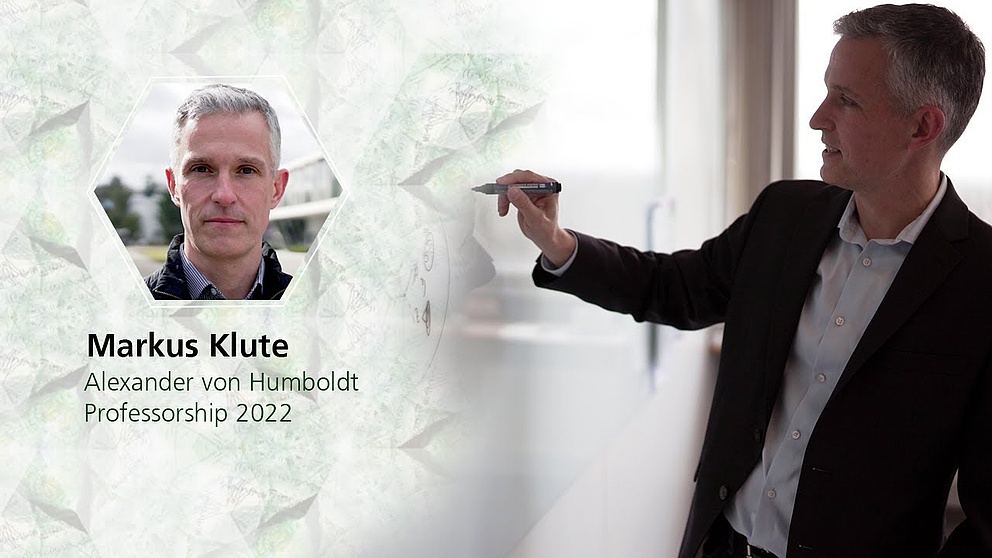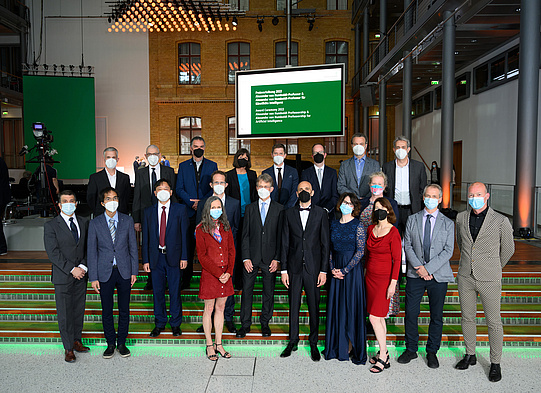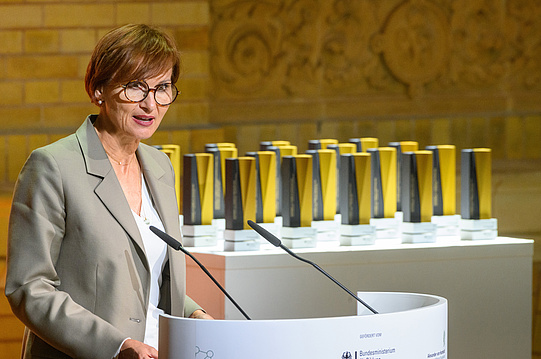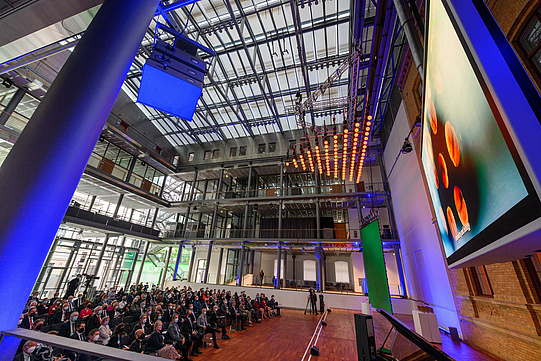Jump to the content
- {{#headlines}}
- {{title}} {{/headlines}}

Contact
Press, Communications and Marketing
Tel.: +49 228 833-144
Fax: +49 228 833-441
presse[at]avh.de
Elementary particle physics
The proof of the Higgs boson at CERN’s Large Hadron Collider (LHC) in 2012 was one of physics’ great events: it was a spectacular moment in basic research when experiments confirmed the last missing building block in the standard model of particle physics. Markus Klute and his team played a leading role in the Compact Muon Solenoid experiment (CMS). His later measurements were also pathbreaking and ushered in a deeper understanding of the Higgs’ properties. Moreover, they established the use of modern machine learning techniques in high-energy physics.
Klute focuses on particle physics at the energy frontier, both in the design, construction and commissioning of particle detectors and in the analysis of the data collected. In order for him and other scientists to continue the search for subatomic particles, which could explain the origins of the universe, precise measurements are necessary. CERN is therefore upgrading its particle accelerator. As of 2027, the High Luminosity LHC project should deliver significantly more data and thus also more Higgs particles than has been possible so far.
Involving more than 5,000 people from over 50 countries, the CMS experiment is one of the world’s largest international research projects. The Institute of Experimental Particle Physics at KIT is already one of the largest university institutes involved in the CMS experiment. In conjunction with Markus Klute as a Humboldt Professor, KIT strives to achieve a leading global position in the LHC Programme at CERN; it also wants to develop new collaborations within the KIT Center Elementary Particle and Astroparticle Physics (KCETA) and its graduate school. Klute is invited to head the CMS project at the Institute of Experimental Particle Physics.
Brief bio
Born in Germany, Professor Dr Markus Klute has been a full professor at the Massachusetts Institute of Technology (MIT), Cambridge, United States, since 2020. He studied physics and mathematics at the University of Bonn but already spent time as a doctoral student working on research at CERN in Geneva, Switzerland, and the Fermilab, near Chicago, United States. He completed his doctorate in Bonn in 2004. Moving to MIT, he became a research scientist there before relocating to a professorship at the University of Göttingen in 2008. In 2009, he returned to MIT, initially as an assistant professor, then as an associate professor. Amongst others, he is a Fellow of the American Physical Society, a reviewer for the National Science Foundation and a member of the scientific advisory board of the PRISMA+ cluster of excellence in Mainz.
Photos and videos









